
The Golden Splendor of Jaisalmer
Jaisalmer, known as the 'Golden City' of India, is a mesmerizing destination in the heart of the Thar Desert. The city's golden sandstone architecture, which gleams in the sunlight, gives it a unique charm. The Jaisalmer Fort, one of the largest fully preserved fortified cities in the world, stands as a testament to the city's rich history. Built in 1156 AD, this UNESCO World Heritage Site is a living fort, with homes, shops, and temples inside its walls. Wandering through the narrow lanes of the fort, you will find exquisite havelis, or traditional mansions, showcasing intricate carvings and latticework. The Patwon Ki Haveli and Salim Singh Ki Haveli are particularly stunning examples. These architectural marvels provide a glimpse into the opulent lifestyle of the merchants who once lived there. Beyond its architectural splendor, Jaisalmer offers a range of cultural experiences. The annual Desert Festival, held every February, is a vibrant celebration of Rajasthani culture, featuring folk music and dance, camel races, and local crafts. The city is also a gateway to the vast Thar Desert, where tourists can enjoy camel safaris, dune bashing, and stargazing under the clear desert sky. The serene Gadisar Lake, surrounded by temples and ghats, offers a peaceful retreat from the hustle and bustle of the city. A boat ride on the lake at sunset is a memorable experience that captures the essence of Jaisalmer’s tranquil beauty. With its rich history, vibrant culture, and stunning landscapes, Jaisalmer is a must-visit destination for any traveler exploring India.
Local tips in Jaisalmer
- Visit Jaisalmer Fort early in the morning to avoid crowds and the midday heat.
- Try local delicacies like dal baati churma and gatte ki sabzi at a traditional Rajasthani restaurant.
- Book a camel safari in advance to secure the best rates and ensure availability.
- Carry cash, as many local shops and eateries do not accept credit cards.
- Dress in layers, as temperatures can vary significantly between day and night in the desert.
The Golden Splendor of Jaisalmer
Jaisalmer, known as the 'Golden City' of India, is a mesmerizing destination in the heart of the Thar Desert. The city's golden sandstone architecture, which gleams in the sunlight, gives it a unique charm. The Jaisalmer Fort, one of the largest fully preserved fortified cities in the world, stands as a testament to the city's rich history. Built in 1156 AD, this UNESCO World Heritage Site is a living fort, with homes, shops, and temples inside its walls. Wandering through the narrow lanes of the fort, you will find exquisite havelis, or traditional mansions, showcasing intricate carvings and latticework. The Patwon Ki Haveli and Salim Singh Ki Haveli are particularly stunning examples. These architectural marvels provide a glimpse into the opulent lifestyle of the merchants who once lived there. Beyond its architectural splendor, Jaisalmer offers a range of cultural experiences. The annual Desert Festival, held every February, is a vibrant celebration of Rajasthani culture, featuring folk music and dance, camel races, and local crafts. The city is also a gateway to the vast Thar Desert, where tourists can enjoy camel safaris, dune bashing, and stargazing under the clear desert sky. The serene Gadisar Lake, surrounded by temples and ghats, offers a peaceful retreat from the hustle and bustle of the city. A boat ride on the lake at sunset is a memorable experience that captures the essence of Jaisalmer’s tranquil beauty. With its rich history, vibrant culture, and stunning landscapes, Jaisalmer is a must-visit destination for any traveler exploring India.
When is the best time to go to Jaisalmer?
Iconic landmarks you can’t miss
Jaisalmer Fort
Discover the enchanting Jaisalmer Fort, a UNESCO World Heritage Site that embodies Rajasthan's rich history and vibrant culture.
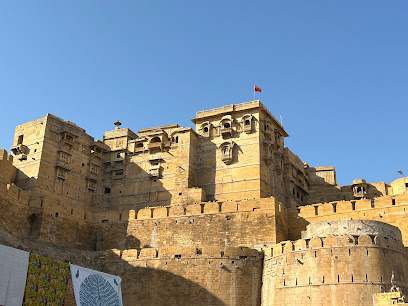
Kothari's Patwon Ki Haveli / Patwa Haveli
Discover the architectural beauty and historical significance of Kothari's Patwon Ki Haveli in Jaisalmer, a must-visit heritage museum for all travelers.
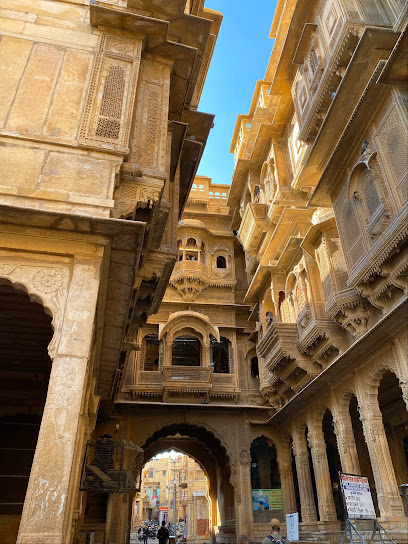
Jaisalmer War Museum
Visit Jaisalmer War Museum: A captivating tribute to India's military legacy, featuring exhibits that celebrate bravery and sacrifice.
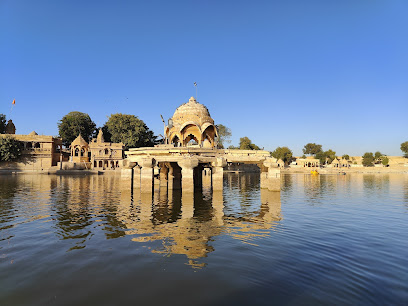
Bada Bagh
Explore Bada Bagh, the enchanting royal cenotaphs of Rajasthan, and immerse yourself in the rich history and architectural splendor of this iconic monument.

Salam Singh Ki Haweli (Moti Mahal)
Explore Salam Singh Ki Haweli, a captivating historical landmark in Jaisalmer, showcasing exquisite architecture and rich cultural heritage.
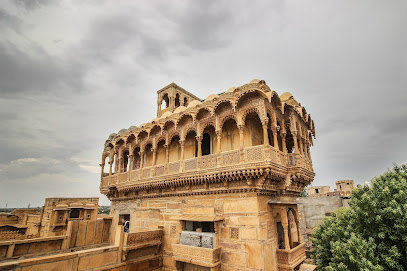
Nathmal Ki Haveli
Discover the intricate beauty and rich history of Nathmal Ki Haveli, a stunning architectural gem in Jaisalmer, Rajasthan's golden city.
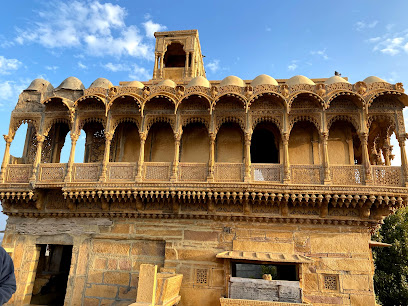
Sand world of thar desert resort
Experience the magic of the Thar Desert at Sand World Resort, where adventure meets rich Rajasthani culture in a stunning desert landscape.
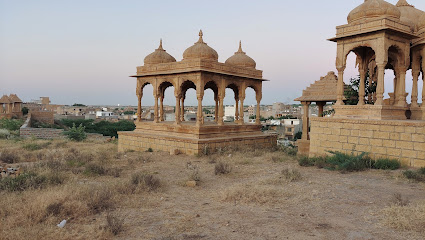
Patwa Haveli Foundation - Jaisalmer
Explore the exquisite architecture and rich cultural heritage of Patwa Haveli Foundation in Jaisalmer, a historical gem of Rajasthan.
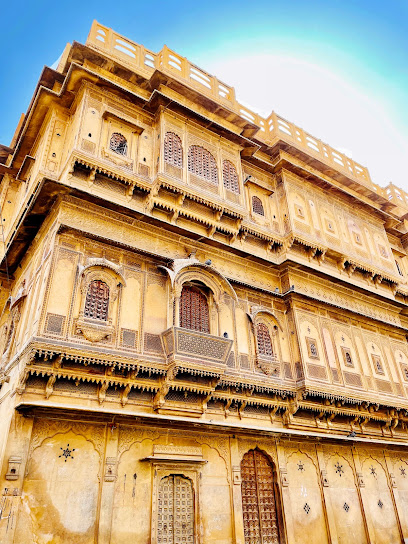
Desert Cultural Centre (puppet show)
Explore the Desert Cultural Centre in Jaisalmer for an unforgettable journey into Rajasthan's rich cultural heritage with enchanting puppet shows and engaging exhibits.
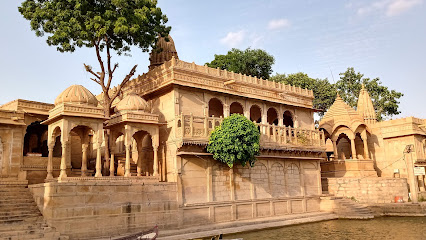
The Thar Heritage Museum
Experience the vibrant culture and history of Rajasthan at The Thar Heritage Museum in Jaisalmer, a captivating journey through the desert's heritage.
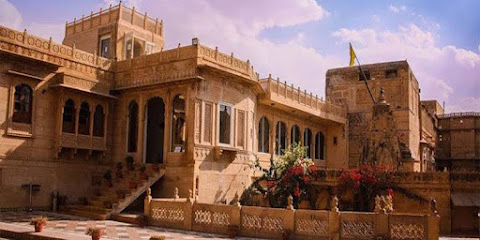
Desert wala jaisalmer
Experience the magic of the Thar Desert at Desert Wala in Jaisalmer - a perfect blend of adventure, culture, and stunning landscapes.
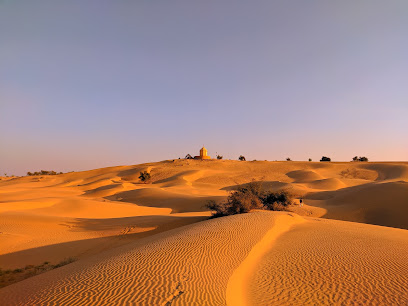
Government Museum
Discover Jaisalmer's history at the Government Museum, where artifacts and culture come alive in a captivating journey through Rajasthan's past.
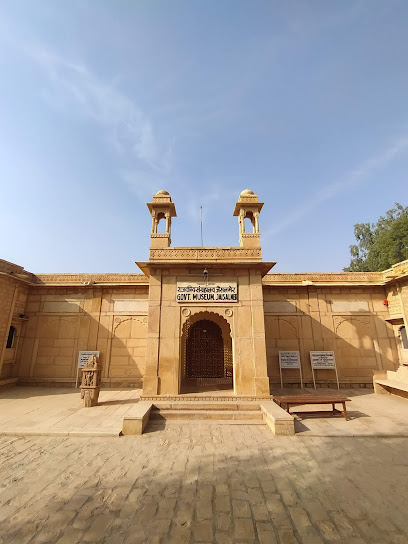
Desert camp in Jaisalmer- Sam sand dunes desert safari
Discover the magic of the Thar Desert at Sam Sand Dunes with unforgettable camel safaris, vibrant cultural experiences, and breathtaking sunsets.
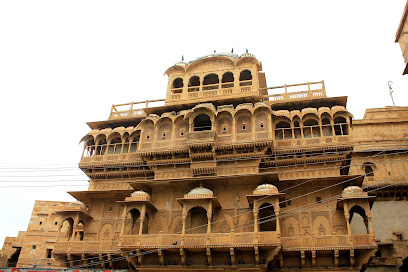
Baa ri haveli
Explore the enchanting Baa ri Haveli in Jaisalmer, a museum that beautifully showcases Rajasthan's rich cultural heritage and architectural splendor.
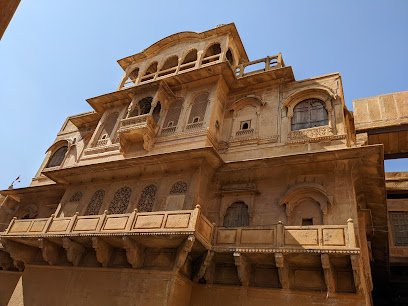
City View Point, Jaisalmer Fort
Discover stunning panoramic views of Jaisalmer from the City View Point, a must-visit vantage point in Rajasthan's Golden City.
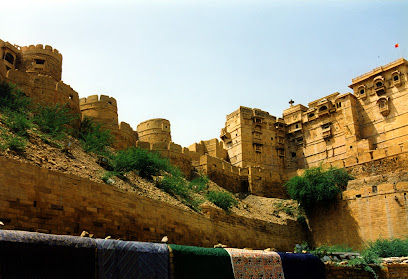
Unmissable attractions to see
Jaisalmer Fort
Discover the enchanting Jaisalmer Fort, a UNESCO World Heritage Site showcasing stunning architecture and vibrant local culture in the heart of Rajasthan.
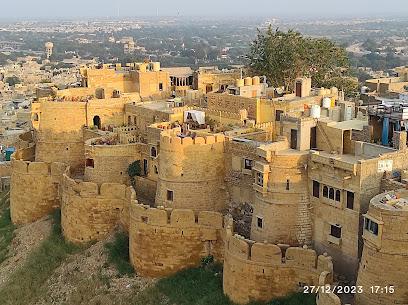
Kothari's Patwon Ki Haveli / Patwa Haveli
Discover the grandeur of Kothari's Patwon Ki Haveli, a heritage museum that embodies the rich history and architecture of Jaisalmer, Rajasthan.
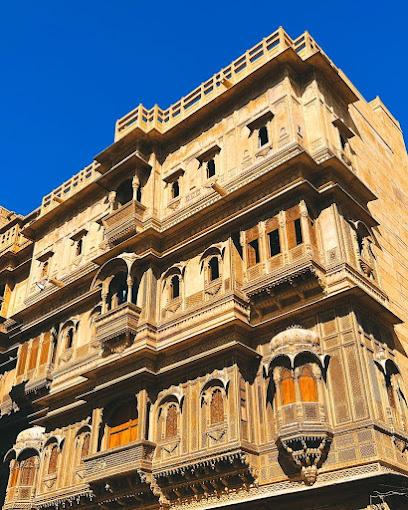
Jaisalmer War Museum
Discover India's military heritage at Jaisalmer War Museum, where history and valor come alive in the heart of Rajasthan.
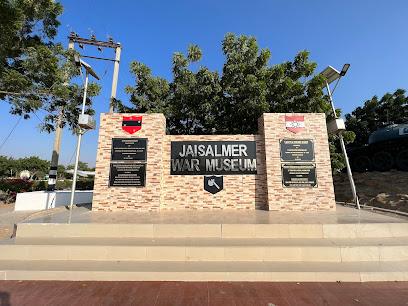
Sam Sand Dunes Camp Jaisalmer
Discover the magic of the Thar Desert at Sam Sand Dunes Camp, where adventure meets traditional Rajasthani culture under a starlit sky.
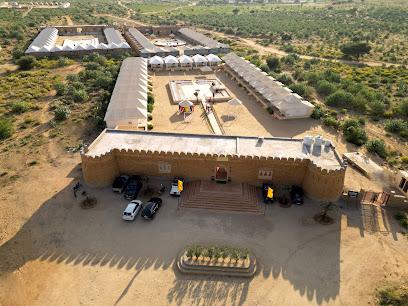
Burj Al Jaisalmer Luxury desert camp in Sam sand dunes
Discover a luxurious desert escape at Burj Al Jaisalmer Luxury Desert Camp, where adventure meets comfort in the heart of Rajasthan's spectacular Sam sand dunes.
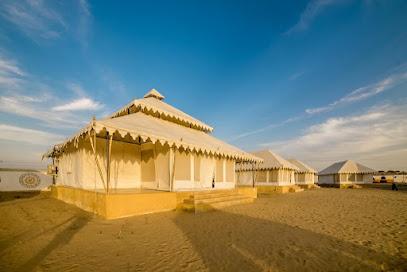
BADA BAGH
Explore the stunning Bada Bagh in Jaisalmer, a mesmerizing monument showcasing royal cenotaphs and breathtaking desert views.
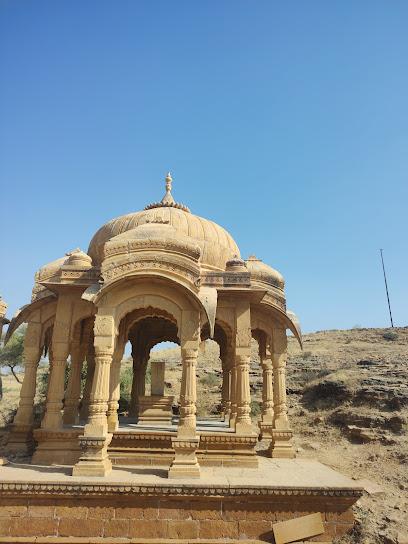
Gadisar Lake Jaisalmer
Discover the serene charm of Gadisar Lake in Jaisalmer, a captivating blend of history, nature, and culture that enchants every visitor.
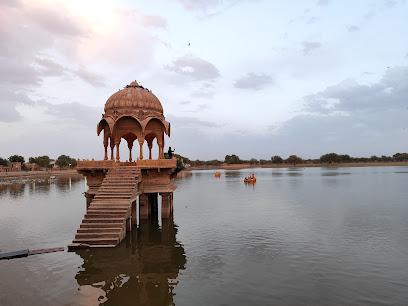
Gadisar Lake
Discover the tranquil beauty of Gadisar Lake, a historic oasis in Jaisalmer, perfect for boat rides and stunning sunsets amidst ancient temples.
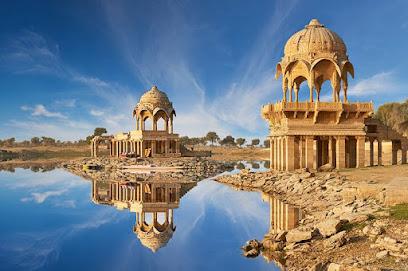
Kuldhara Heritage Village
Explore Kuldhara Heritage Village, a mystical site that reveals the rich history and architectural beauty of Rajasthan's past amidst the stunning Thar Desert.
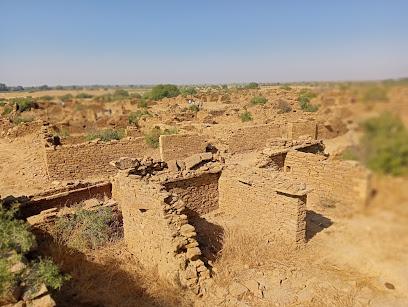
Salam Singh Ki Haweli (Moti Mahal)
Explore the exquisite Salam Singh Ki Haweli, a historical treasure in Jaisalmer, showcasing Rajasthani architecture and rich heritage.
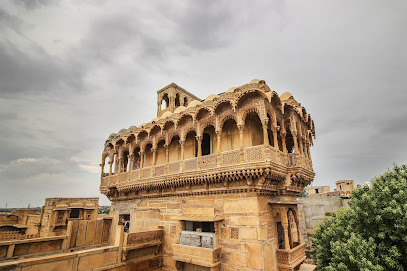
Nathmal Ki Haveli
Discover the architectural splendor and historical essence of Nathmal Ki Haveli, a must-visit gem in Jaisalmer, Rajasthan.
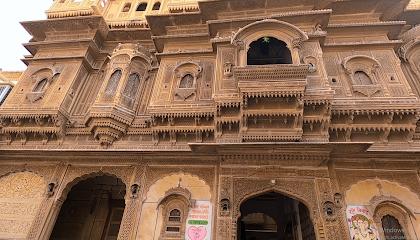
Real Desert Man Camel Safari Jaisalmer
Discover the enchanting Thar Desert with Real Desert Man Camel Safari, a unique blend of adventure and cultural experience in Jaisalmer, Rajasthan.
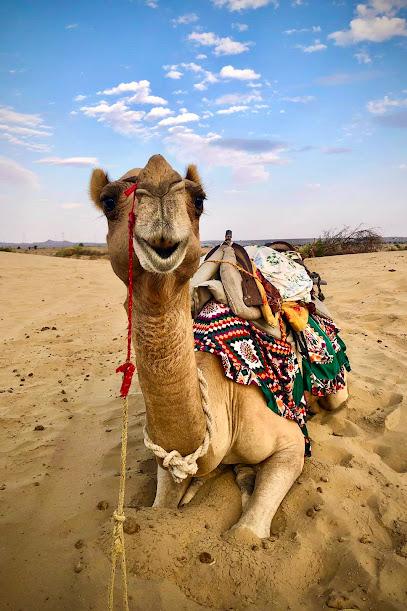
Emirates Luxury Desert Camp Jaisalmer - Sam Sand Dunes
Discover the enchanting Emirates Luxury Desert Camp in the heart of Jaisalmer's stunning Sam Sand Dunes for an unforgettable desert adventure.
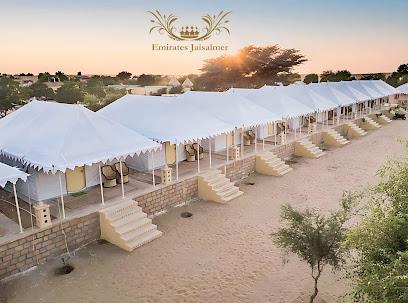
WelcomHeritage Mandir Palace
Discover the grandeur of Rajasthan at WelcomHeritage Mandir Palace, a heritage hotel blending royal history with modern luxury in Jaisalmer.
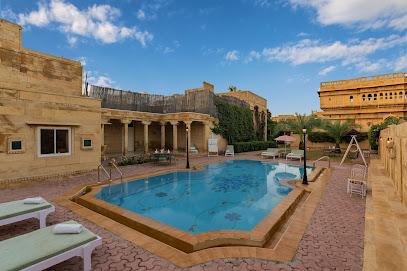
Karan Desert Safari Jaisalmer
Discover the enchanting Thar Desert with Karan Desert Safari in Jaisalmer, where adventure meets authentic Rajasthani culture and breathtaking landscapes.
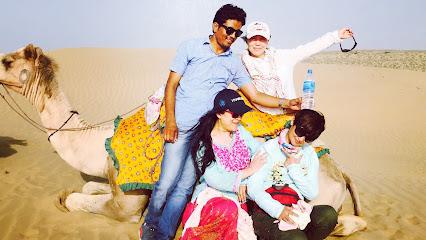
Essential places to dine
Café The Kaku Jaisalmer
Discover the flavors of India at Café The Kaku in Jaisalmer—where traditional cuisine meets contemporary flair.
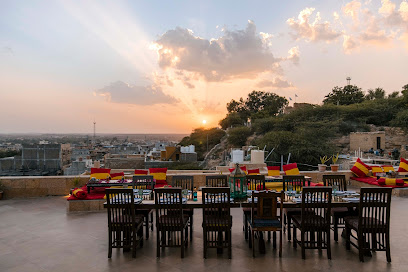
Green Park Restaurant Jaisalmer
Discover the essence of Indian flavors at Green Park Restaurant in Jaisalmer – where every meal tells a story.
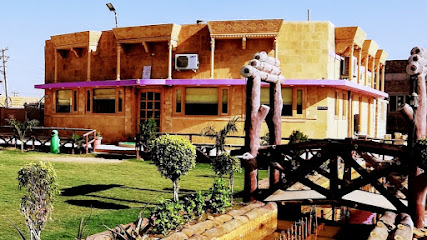
Shree Jee Excellency
Discover authentic Rajasthani vegetarian cuisine at Shree Jee Excellency in Jaisalmer - a culinary gem reflecting local traditions.
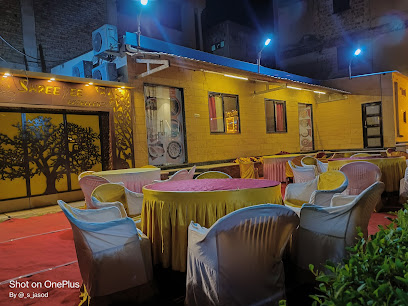
Riddhi Siddhi Restaurant
Experience the authentic taste of India at Riddhi Siddhi Restaurant, where vegetarian delights meet family-friendly dining in Jaisalmer.
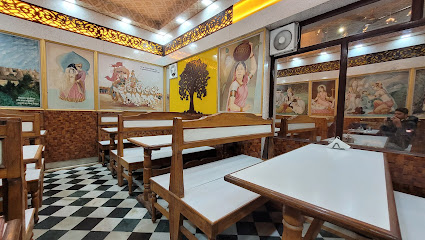
OTR - On The Road Restaurant
Experience the rich flavors of Rajasthan at OTR - On The Road Restaurant, where vegetarian cuisine meets international delights.
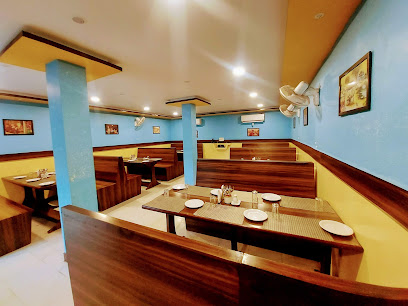
Thakur Ji Restaurant
Experience the rich flavors of India at Thakur Ji Restaurant, your go-to spot for delicious vegetarian cuisine in Jaisalmer.
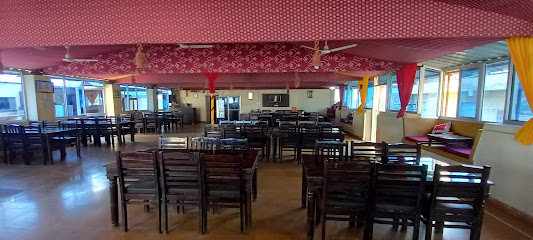
The Trio Restaurant | Multicuisine Restaurant
Experience authentic Rajasthani cuisine at The Trio Restaurant - a family-friendly multicuisine gem in Jaisalmer.
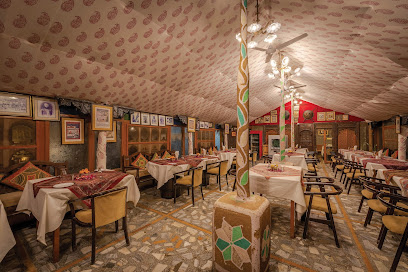
BHAGWAT RESTAURANT
Experience authentic vegetarian cuisine at Bhagwat Restaurant in Jaisalmer - a must-visit culinary destination that celebrates Rajasthani flavors.
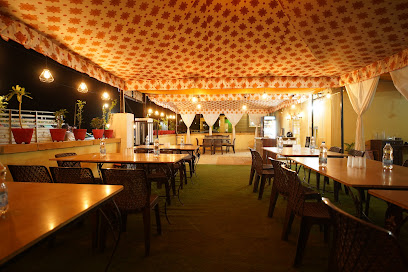
Tathastu Jaisalmer - A Café By Lake
Discover the flavors of India at Tathastu Jaisalmer – where culinary delight meets lakeside tranquility.
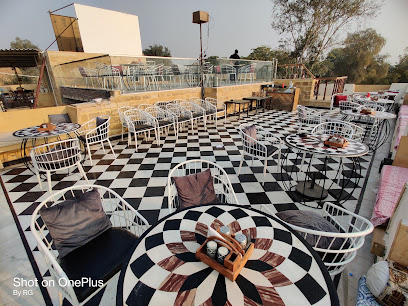
Restaurant Romany Jaisalmer
Experience authentic Indian breakfasts with stunning views at Restaurant Romany in Jaisalmer – a culinary delight not to be missed.
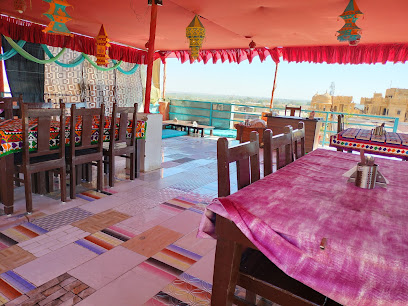
Delight Restaurant
Experience authentic Indian flavors at Delight Restaurant in Jaisalmer - where tradition meets taste in every bite.
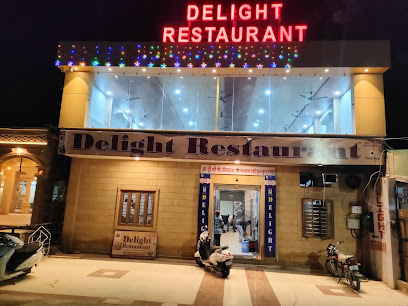
Jaisal Italy Restaurant
Experience authentic Italian cuisine infused with local flavors at Jaisal Italy Restaurant in the heart of Jaisalmer.
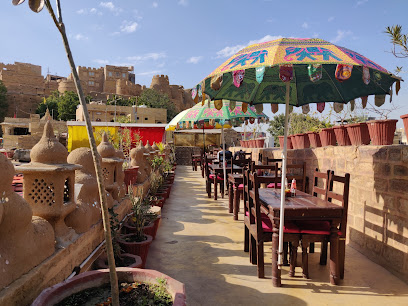
1156AD Jaisalmer
Experience authentic Rajasthani flavors at 1156AD Jaisalmer – where culture meets culinary excellence.
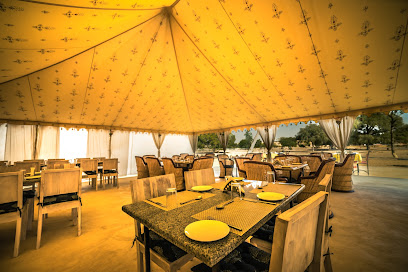
Cafe+ Best Restaurant & Cafeteria in Jaisalmer
Experience the vibrant flavors of vegetarian cuisine at Cafe+, Jaisalmer's favorite spot for breakfast and casual dining.
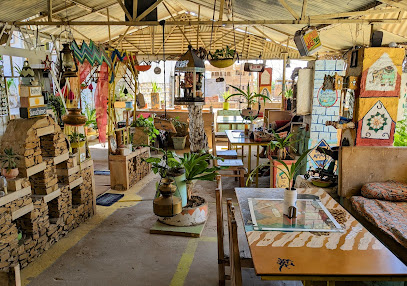
Desert Bite restaurant
Savor authentic Indian and Punjabi vegetarian cuisine at Desert Bite restaurant in Jaisalmer - where every dish tells a story.
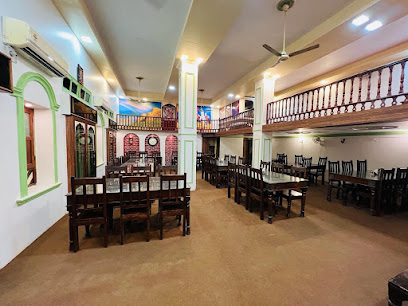
Markets, malls and hidden boutiques
Shopping in jaisalmer-Jai Shankar Handicrafts
Explore the vibrant world of textiles and crafts at Jai Shankar Handicrafts, a premier destination for authentic Rajasthani artistry in Jaisalmer.
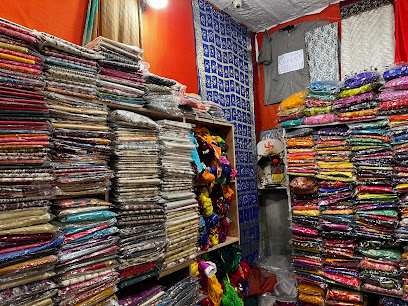
Weekend Factory
Discover unique clothing at Weekend Factory in Jaisalmer, offering casual, sportswear, and underwear that reflect the vibrant spirit of Rajasthan.
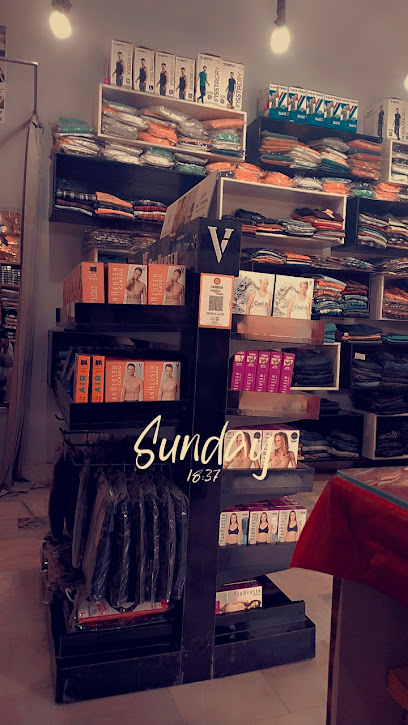
Basant Art Emporium - Jaisalmer District, Rajasthan, India
Explore the exquisite antiques and handicrafts of Rajasthan at Basant Art Emporium, a hidden gem in the heart of Jaisalmer.
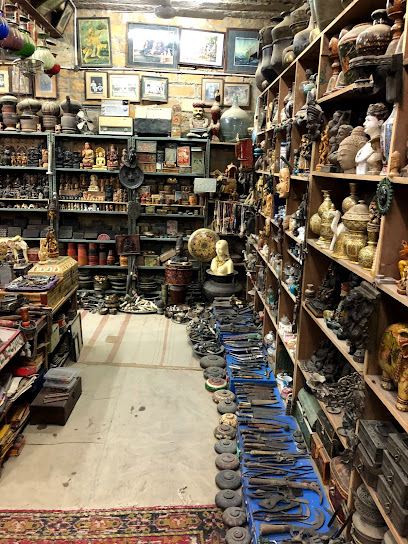
Krishna gallery mobile shop
Experience the fusion of modern technology and local culture at Krishna Gallery Mobile Shop in Jaisalmer's Sadar Bazar.
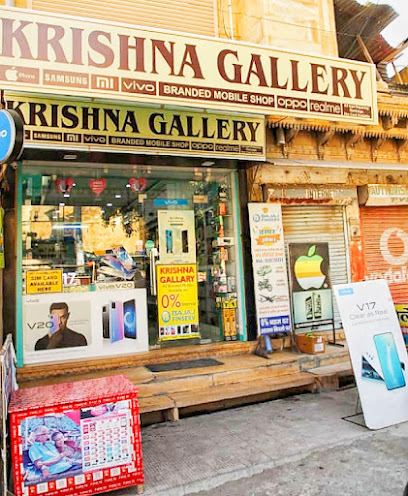
BD Soni ,Jewels Haveli -Jewellery Showroom In Jaisalmer
Explore the exquisite antique and costume jewelry at BD Soni Jewels Haveli in Jaisalmer, a jewel of Rajasthan's rich cultural heritage.
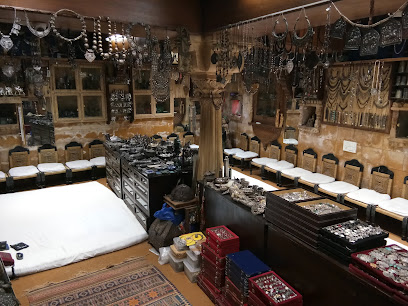
Ajay Leather Shop
Discover the exquisite craftsmanship of Ajay Leather Shop in Jaisalmer, where tradition meets style in every handcrafted leather piece.
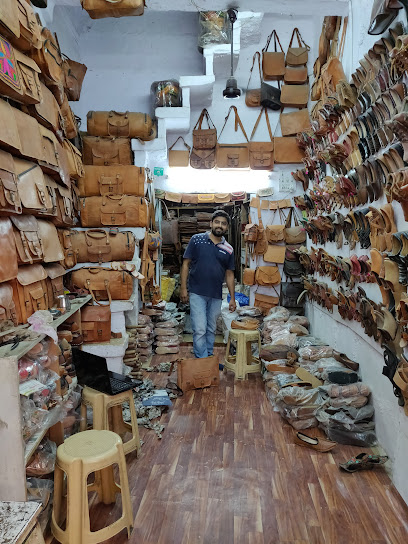
Kunj Sarees (Rajasthani Tradition Sarees)
Explore Kunj Sarees in Jaisalmer for authentic Rajasthani sarees and immerse yourself in a world of vibrant colors and rich traditions.
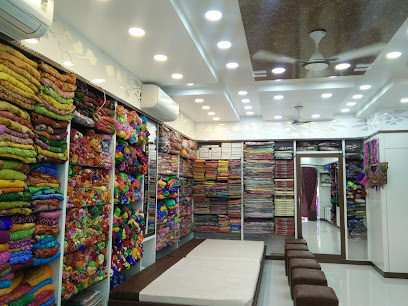
Desert Handicraft Emporium
Explore the Desert Handicraft Emporium for authentic Rajasthani handicrafts and unique souvenirs that embody the rich cultural heritage of India.
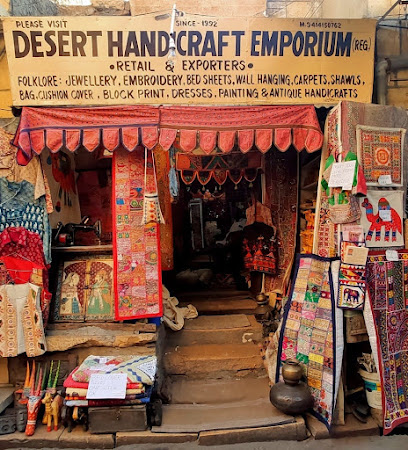
Antique Shop Jaisalmer
Explore the rich heritage of Rajasthan at Antique Shop Jaisalmer, where every artifact tells a story and every corner is filled with history.
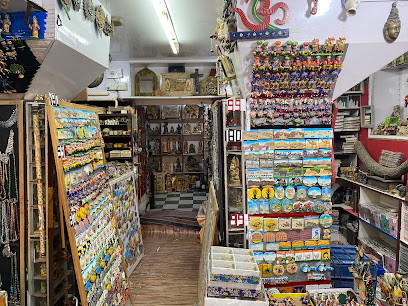
National handloom emporium
Explore the National Handloom Emporium in Jaisalmer for exquisite handmade textiles and authentic Rajasthani crafts.
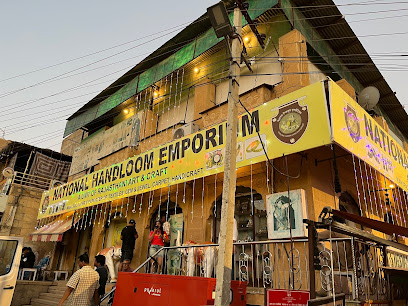
GG COLLECTION - BEST GIFTS, TOYS, ATTAR, PERFUME AND HANDICRAFTS SHOP IN JAISALMER
Discover a treasure trove of exquisite gifts, handcrafted toys, and aromatic perfumes at GG Collection in Jaisalmer, Rajasthan.
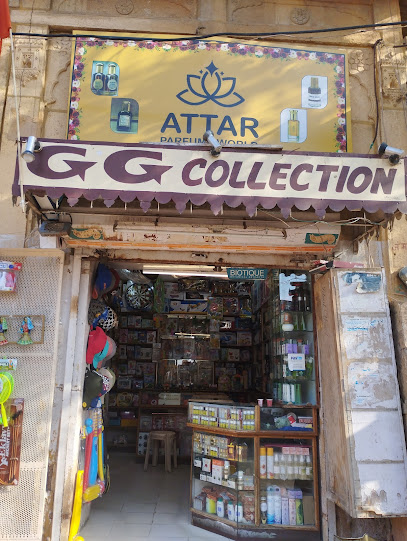
Ali Baba Boutique Jaisalmer
Experience the rich craftsmanship of Rajasthan at Ali Baba Boutique, a premier shopping destination in Jaisalmer offering unique handmade treasures.
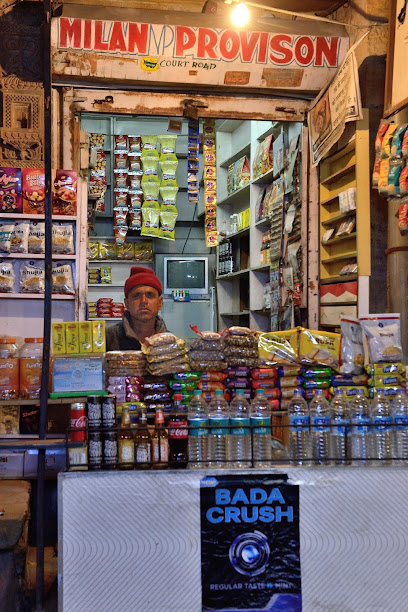
Jaisalmer Handloom Handicraft Industries
Explore Jaisalmer Handloom Handicraft Industries for a captivating collection of traditional Rajasthani antiques and handicrafts, showcasing exquisite local artistry.
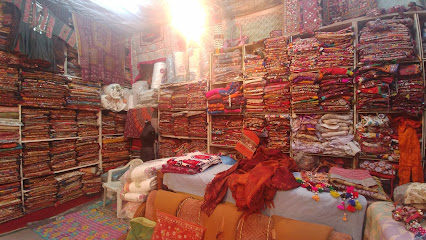
Jaisalmer Art & Craft ( jaisalmer Haat)
Discover the vibrant craftsmanship of Rajasthan at Jaisalmer Art & Craft, where every purchase tells a story of tradition and artistry.
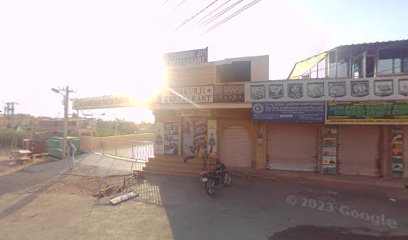
Hazarimal Sanwaldas Since 1958 Shop in Jaisalmer
Discover the vibrant textiles and traditional garments at Hazarimal Sanwaldas, a shopping paradise in Jaisalmer since 1958.
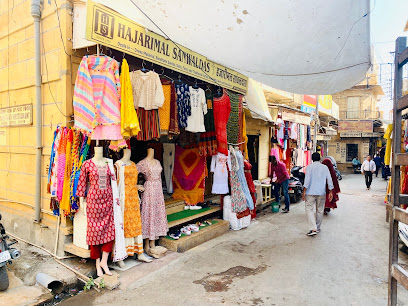
Essential bars & hidden hideouts
Cafe+ Best Restaurant & Cafeteria in Jaisalmer
Experience the best of vegetarian dining at Cafe+ in Jaisalmer, where flavors meet tradition in a vibrant setting.
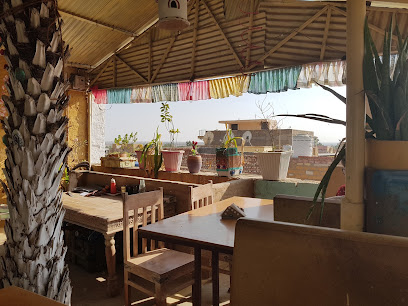
3D CAFE LOUNGE Restaurant
Experience the vibrant flavors of Jaisalmer at 3D Cafe Lounge, where culinary excellence meets local culture in a cozy setting.
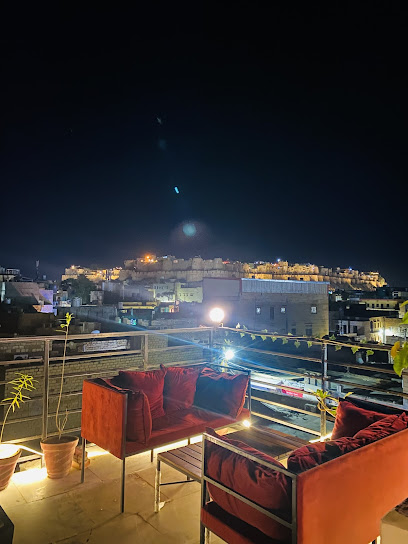
The Bera House , Multicusine Restaurant Jaisalmer
Experience the vibrant flavors and enchanting ambiance at The Bera House, Jaisalmer's premier multi-cuisine restaurant and bar.
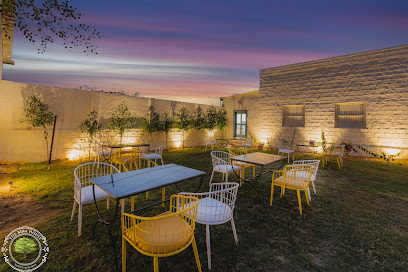
रंगरसिया बीयर बार & हुक्का बार
Explore the vibrant nightlife of Jaisalmer at रंगरसिया बीयर बार & हुक्का बार, where great flavors and a lively atmosphere await.
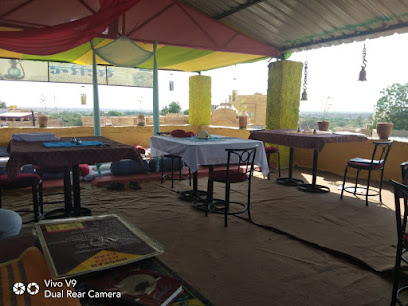
Ba's Cafe and Restaurant | Live Music |
Discover Ba's Cafe and Restaurant in Jaisalmer Fort, where live music meets authentic Rajasthani cuisine for an unforgettable dining experience.
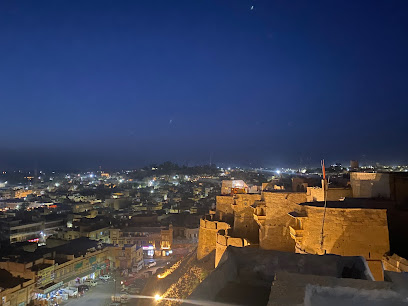
Restaurant Helsinki
Discover the exquisite flavors of Rajasthan and beyond at Restaurant Helsinki, where every meal is a celebration of culinary artistry.
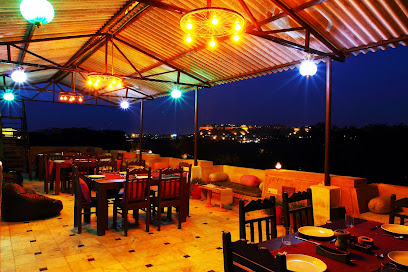
Bhati Bar & Restaurant
Experience the authentic flavors of Rajasthan at Bhati Bar & Restaurant, a must-visit culinary destination in Jaisalmer.
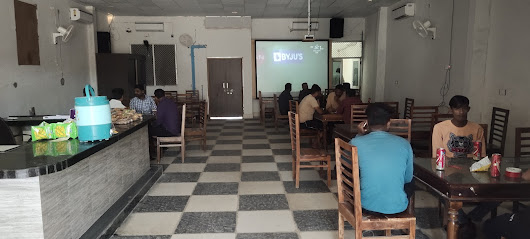
Wyra - Rooftop Restaurant in Jaisalmer
Experience the breathtaking views and exquisite flavors at Wyra Rooftop Restaurant in Jaisalmer, where culinary artistry meets stunning desert vistas.
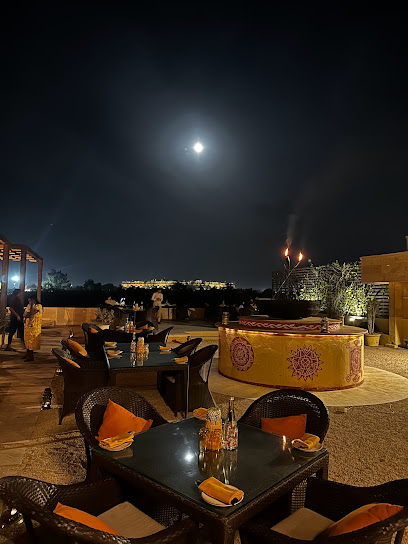
Ma bhawani restaurant & bar
Discover the perfect blend of traditional Indian flavors and vibrant nightlife at Ma Bhawani Restaurant & Bar in Jaisalmer.
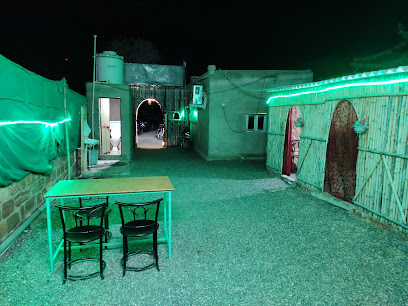
RTDC Moomal Bar (मधुशाला)
Discover the vibrant nightlife of Rajasthan at RTDC Moomal Bar, where local culture meets refreshing beverages in a lively atmosphere.
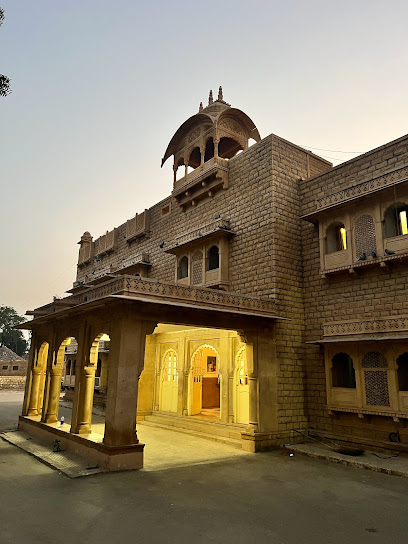
Dunes Bar
Discover the vibrant Dunes Bar at Marriott Resort & Spa in Jaisalmer, where exquisite drinks meet delectable grilled delicacies amidst stunning desert views.
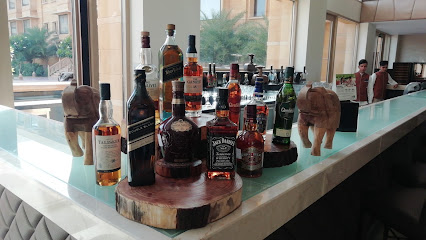
Night View Restaurant Jaisalmer
Savor exquisite Rajasthani cuisine while enjoying breathtaking rooftop views of the Golden City at Night View Restaurant, Jaisalmer.
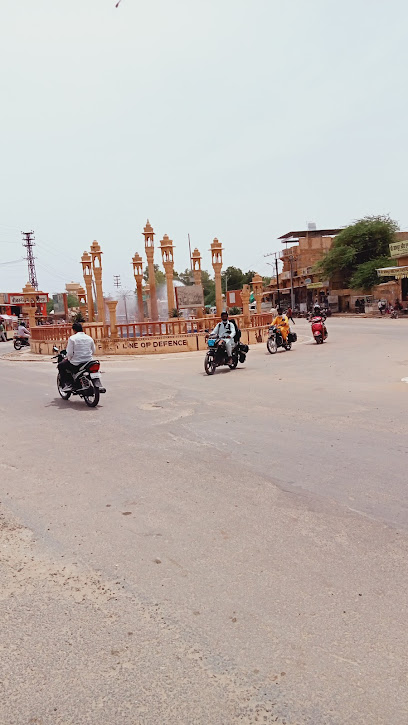
Rtdc शराब सरकारी ठेका
Discover local flavors and a vibrant atmosphere at Rtdc शराब सरकारी ठेका in Kishan Ghat, Rajasthan.
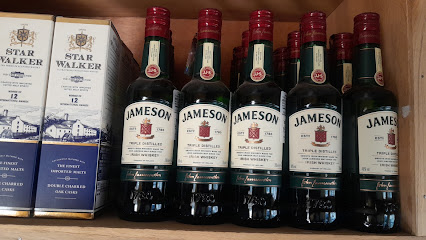
Than singh kotra wine shop
Discover the unique charm of Than Singh Kotra Wine Shop in Jaisalmer, where local wines and vibrant atmosphere create an unforgettable experience.
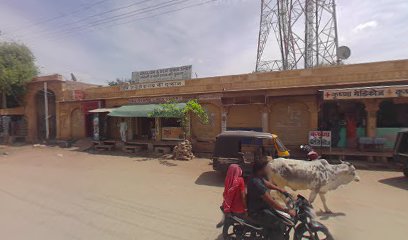
Desi thungar & Bar Be Que
Experience the rich flavors of India at Desi Thungar & Bar Be Que, a must-visit restaurant in Jaisalmer, Rajasthan.
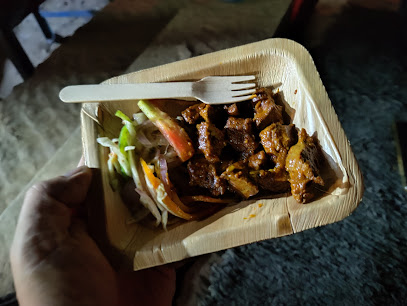
Local Phrases
-
- Helloनमस्ते
[Namaste] - Goodbyeअलविदा
[Alvida] - Yesहां
[Haan] - Noनहीं
[Nahi] - Please/You're welcomeकृपया
[Kripaya] - Thank youधन्यवाद
[Dhanyavaad] - Excuse me/Sorryमाफ़ कीजिए
[Maaf kijiye] - How are you?आप कैसे हैं?
[Aap kaise hain?] - Fine. And you?ठीक हूँ। आप सुनाइए।
[Theek hoon. Aap sunaiye.] - Do you speak English?क्या आप अंग्रेज़ी बोलते हैं?
[Kya aap angrezi bolte hain?] - I don't understandमुझे समझ नहीं आया
[Mujhe samajh nahi aaya]
- Helloनमस्ते
-
- I'd like to see the menu, pleaseकृपया मेनू दिखाइए
[Kripaya menu dikhaiye] - I don't eat meatमैं मांस नहीं खाता
[Main maans nahi khaata] - Cheers!चियर्स!
[Cheers!] - I would like to pay, pleaseकृपया मुझे भुगतान करने दीजिए
[Kripaya mujhe bhugtan karne dijiye]
- I'd like to see the menu, pleaseकृपया मेनू दिखाइए
-
- Help!बचाओ!
[Bachao!] - Go away!दूर हो जाओ!
[Door ho jao!] - Call the Police!पुलिस को बुलाओ!
[Police ko bulao!] - Call a doctor!डॉक्टर को बुलाओ!
[Doctor ko bulao!] - I'm lostमैं खो गया हूँ
[Main kho gaya hoon] - I'm illमुझे बीमारी है
[Mujhe bimari hai]
- Help!बचाओ!
-
- I'd like to buy...मैं खरीदना चाहता हूँ...
[Main khareedna chahta hoon...] - I'm just lookingमैं सिर्फ देख रहा हूँ
[Main sirf dekh raha hoon] - How much is it?यह कितने का है?
[Yeh kitne ka hai?] - That's too expensiveये बहुत महंगा है
[Ye bahut mehnga hai] - Can you lower the price?क्या आप कीमत कम कर सकते हैं?
[Kya aap keemat kam kar sakte hain?]
- I'd like to buy...मैं खरीदना चाहता हूँ...
-
- What time is it?कितने बजे हैं?
[Kitne baje hain?] - It's one o'clockएक बजे हैं
[Ek baje hain] - Half past (10)दस बजे तक सुबह
[Das baje tak subah] - Morningसुबह
[Subah] - Afternoonदोपहर
[Dopahar] - Eveningशाम
[Shaam] - Yesterdayकल
[Kal] - Todayआज
[Aaj] - Tomorrowकल
[Kal] - 1एक
[Ek] - 2दो
[Do] - 3तीन
[Teen] - 4चार
[Char] - 5पाँच
[Paanch] - 6छह
[Chhah] - 7सात
[Saath] - 8आठ
[Aath] - 9नौ
[Nau] - 10दस
[Das]
- What time is it?कितने बजे हैं?
-
- Where's a/the...?...कहाँ है?
[...kahan hai?] - What's the address?पता क्या है?
[Pata kya hai?] - Can you show me (on the map)?क्या आप मुझे दिखा सकते हैं (नक्शे पर)?
[Kya aap mujhe dikha sakte hain (nakshay par)?] - When's the next (bus)?अगली (बस) कब है?
[Agli (bus) kab hai?] - A ticket (to ....)एक टिकट (... के लिए)
[Ek ticket (... ke liye)]
- Where's a/the...?...कहाँ है?
History of Jaisalmer
-
Jaisalmer, often referred to as the 'Golden City,' was founded in 1156 AD by Rawal Jaisal Singh, a Bhati Rajput ruler. The city is named after him, and its strategic location on the crossroads of lucrative trade routes made it a significant center of commerce and power in the Thar Desert.
-
Jaisalmer Fort, also known as Sonar Quila or the Golden Fort, is one of the largest fully preserved fortified cities in the world. Built by Rawal Jaisal Singh, the fort rises from the desert sands like a mirage. The yellow sandstone walls take on a honey-gold hue as the sun sets, giving the fort its distinctive appearance.
-
During the 18th and 19th centuries, wealthy merchants built grand havelis, or mansions, in Jaisalmer. These havelis, such as Patwon Ki Haveli, Nathmal Ki Haveli, and Salim Singh Ki Haveli, are renowned for their intricate carvings, elaborate facades, and exquisite artwork, reflecting the prosperity brought by trade.
-
Jaisalmer flourished as a trade hub due to its location on the ancient Silk Road. Caravans laden with silk, spices, and precious gems would stop in Jaisalmer, contributing to the city's wealth and cosmopolitan culture. The city served as a gateway for merchants traveling between India and Central Asia.
-
In 1294, the fort faced a significant siege by Alauddin Khilji, the Sultan of Delhi. Despite fierce resistance, the fort fell after eight months. The Rajput women performed Jauhar, a ritual mass self-immolation, to avoid capture and dishonor. This event is a poignant chapter in Jaisalmer's history, symbolizing bravery and sacrifice.
-
With the advent of British colonial rule and the opening of new trade routes, Jaisalmer's strategic importance dwindled. However, the city experienced a revival in the 20th century due to tourism. The preservation of its historical architecture and cultural heritage has made Jaisalmer a popular tourist destination.
-
Jaisalmer hosts various cultural festivals that showcase its rich heritage. The Desert Festival, held annually in February, features folk music, dance performances, camel races, and traditional crafts. The vibrant colors and lively atmosphere of these festivals attract visitors from around the world.
-
The architecture of Jaisalmer is a blend of Rajput and Islamic styles, characterized by the use of yellow sandstone. The city's urban planning includes narrow winding streets, courtyards, and interconnected buildings that provide shade and protection from the harsh desert climate. The fort itself is a living urban center, with residences, temples, and shops within its walls.
-
Jaisalmer is home to several important religious sites, including the Jain Temples within the fort complex. These temples, built between the 12th and 16th centuries, are known for their intricate marble carvings and architectural beauty. The city's religious diversity is also evident in its Hindu temples and mosques.
Jaisalmer Essentials
-
Jaisalmer, located in the Indian state of Rajasthan, is accessible by air, rail, and road. The nearest airport is Jaisalmer Airport, which operates limited flights. The nearest major airport is Jodhpur Airport, about 285 kilometers away. From Jodhpur, you can take a taxi or a bus to Jaisalmer. Jaisalmer is well-connected by train, with the Jaisalmer Railway Station offering direct connections to major cities like Delhi, Jaipur, and Jodhpur. Buses and private taxis are also available for road travel from nearby cities.
-
Getting around Jaisalmer is convenient with various transportation options. Auto-rickshaws and cycle-rickshaws are readily available for short trips. For longer journeys, taxis can be hired. Renting scooters or motorcycles is also an option for those who prefer more independence. Public buses operate within the city and to nearby attractions. Walking is a great way to explore the old city area, especially the Jaisalmer Fort and its surroundings.
-
The official currency in Jaisalmer is the Indian Rupee (INR). Credit and debit cards are accepted in many hotels, restaurants, and shops, but it is advisable to carry cash, particularly in smaller establishments and markets. ATMs are available throughout the city, but it is wise to withdraw sufficient cash before heading to remote areas where ATMs may not be accessible.
-
Jaisalmer is generally a safe destination for tourists. However, standard precautions should be taken. Avoid walking alone late at night in isolated areas. Keep your belongings secure, especially in crowded places like markets. Areas around the railway station and bus stands can be hotspots for petty crimes targeting tourists, so remain vigilant. Always use registered taxis and avoid accepting unsolicited offers for guides or services.
-
In case of an emergency, dial 100 for police assistance, 101 for fire emergencies, and 102 for medical emergencies. Jaisalmer has a hospital and several clinics that can handle medical emergencies. It is recommended to have travel insurance that covers medical emergencies. For minor health issues, there are many pharmacies where you can purchase over-the-counter medications.
-
Fashion: Do dress modestly, especially when visiting religious sites. Avoid wearing revealing clothing. Religion: Do respect local customs and traditions. Remove your shoes before entering temples and cover your head if required. Public Transport: Do be respectful and offer your seat to elderly passengers. Don't eat or drink on public transport. Greetings: Do greet people with a 'Namaste' or a handshake. Eating & Drinking: Do try local delicacies and accept food offerings graciously. Don't refuse hospitality, as it is considered impolite.
-
To experience Jaisalmer like a local, visit the local markets, such as Sadar Bazaar and Bhatia Bazaar, where you can buy traditional Rajasthani handicrafts, textiles, and jewelry. Engage with locals; they are often friendly and willing to share stories about their culture and history. Don’t miss the sunset at Sam Sand Dunes and a camel safari for an authentic desert experience. Also, try the local cuisine, including dishes like dal baati churma and gatte ki sabzi, at local eateries.
Trending Landmark in Jaisalmer
-
Jaisalmer Fort
-
Kothari's Patwon Ki Haveli / Patwa Haveli
-
Jaisalmer War Museum
-
Bada Bagh
-
Salam Singh Ki Haweli (Moti Mahal)
-
Nathmal Ki Haveli
-
Sand world of thar desert resort
-
Patwa Haveli Foundation - Jaisalmer
-
Desert Cultural Centre (puppet show)
-
The Thar Heritage Museum
-
Desert wala jaisalmer
-
Government Museum
-
Desert camp in Jaisalmer- Sam sand dunes desert safari
-
Baa ri haveli
-
City View Point, Jaisalmer Fort
Nearby Cities to Jaisalmer
-
Things To Do in Jodhpur
-
Things To Do in Hyderabad
-
Things To Do in Pushkar
-
Things To Do in Multan
-
Things To Do in Udaipur
-
Things To Do in Karachi
-
Things To Do in Ahmedabad
-
Things To Do in Jaipur
-
Things To Do in Rajkot
-
Things To Do in Quetta
-
Things To Do in Faisalabad
-
Things To Do in Vadodara
-
Things To Do in Ranthambore
-
Things To Do in Lahore
-
Things To Do in Delhi











